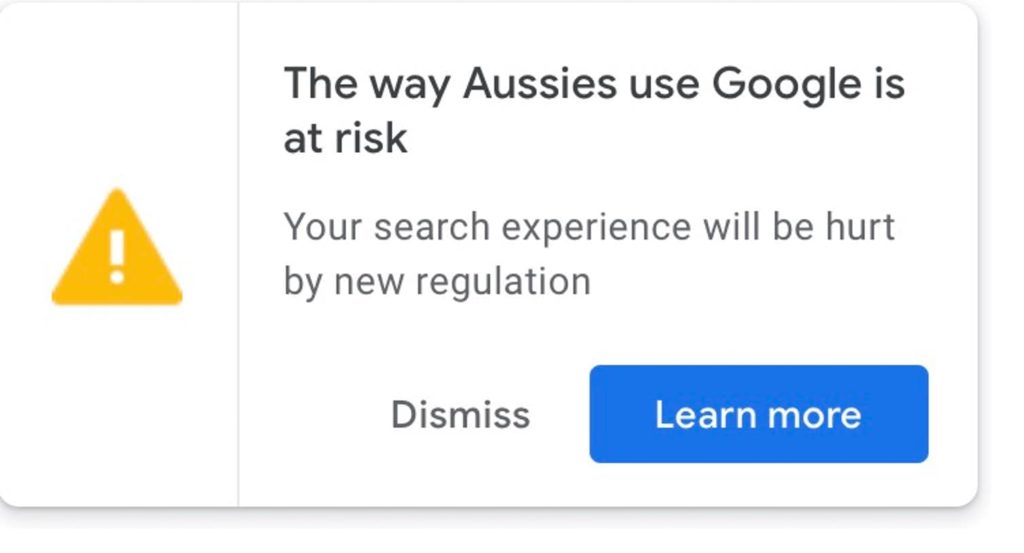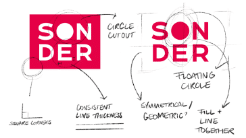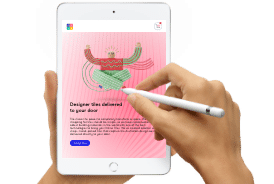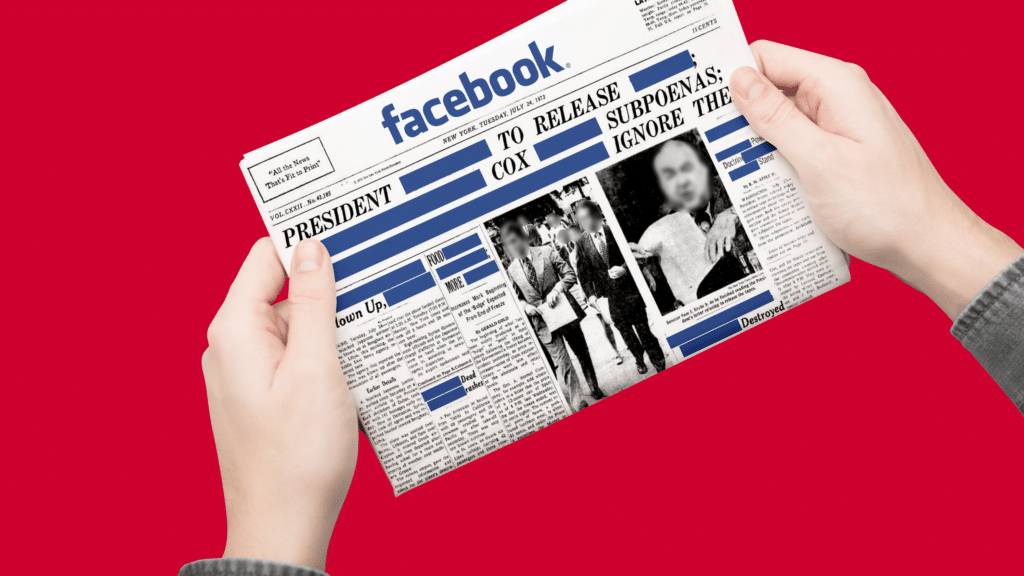So, back in July, the ACCC (Australian Competition & Consumer Commission, or the guys angry customers always plan to call) announced they’d developed a new code of conduct, which would see Google and Facebook have to pay Australian publications for news.
Aussie treasurer, Josh Frydenberg said the idea is for the code to “level the playing field” between our publications and the two tech giants.
“We want Google and Facebook to continue to provide these services to the Australian community, which are so much loved and used by Australians,” he said.
“But we want it to be on our terms.
“We want it to be in accordance with our law and we want it to be fair.”
We can’t say for sure how the ACCC expected Facebook and Google to respond, but it probably wasn’t this way.
via GIPHY
Remember Google’s warnings?
It started with Google. They wrote an open letter to australians. “We need to let you know about new Government regulation that will hurt how Australians use Google Search and YouTube,” opened the letter.
Google warned our search data would be at risk of being handed over to these businesses, Google and Youtube may no longer be free, and probably the biggest threat, they said that the way we search is at risk.
“You’ve always relied on Google Search and YouTube to show you what’s most relevant and helpful to you. We could no longer guarantee that under this law,” they said.
The letter said that Google has always treated publications and other websites, like small businesses’ and the like as equals. That whoever had the better content would rank, not the website classified as a publication.
Google summarised, “The proposed changes are not fair and they mean that Google Search results and YouTube will be worse for you.”

The ACCC were basically pissed.
“Google will not be required to charge Australians for the use of its free services such as Google Search and YouTube, unless it chooses to do so,” the ACCC clarified.
“Google will not be required to share any additional user data with Australian news businesses unless it chooses to do so.”
It went on to say that the point of the new code is so news publications can receive fair payments for the work their journos do, that is often included in Google’s services.
“A healthy news media sector is essential to a well-functioning democracy,” said the ACCC, before assuring that they’d continue to chat with Google on the draft code.
Then Facebook was having none of it.
Facebook didn’t go quite as hard as Google. Where Google warned users of the risks, safety concerns, and threatened we’d get a worse product, Facebook simply said they’ll go without.
Facebook basically said that Australia doesn’t understand the dynamics of the internet. They said the proposed code, “Will do damage to the very news organisations the government is trying to protect.”
The social media giant said, “When crafting this new legislation, the commission overseeing the process ignored important facts, most critically the relationship between the news media and social media and which one benefits most from the other.”
Which is a really good point. We know most people consume their news through social media and most publications receive the most clicks and traffic through social media.
“Assuming this draft code becomes law, we will reluctantly stop allowing publishers and people in Australia from sharing local and international news on Facebook and Instagram.”
They said it’s not their first choice and is in fact their last.
“But it is the only way to protect against an outcome that defies logic and will hurt, not help, the long-term vibrancy of Australia’s news and media sector,” said Facebook.
The ACCC called the threat “ill-timed and misconceived”
“Facebook’s threat today to prevent any sharing of news on its services in Australia is ill-timed and misconceived,” a new statement began.
“The draft media bargaining code aims to ensure Australian news businesses, including independent, community and regional media, can get a seat at the table for fair negotiations with Facebook and Google.”
Another interesting tidbit from their statement is this, “According to the University of Canberra’s 2020 Digital News Report, 39% of Australians use Facebook for general news, and 49% use Facebook for news about COVID-19.”
They closed off the statement saying they hope that as the finalisation of the code makes way, they hope, “all parties will engage in constructive discussions.”
ScoMo is pissed too.
Prime Minister, Scott Morrison warned the companies to work constructively and cooperatively on the matter.
“I’m quite certain we’ll come to a sensible outcome on this, and it won’t need coercion. Wherever it comes from, it’s not something I respond very well to,” he (maybe?) threatened.
“I remember Amazon said to me once, ‘Well, we’re not going to pay this tax’, when it comes to the low-value threshold, and they threatened to pull Amazon, and they did, and they were back three months later,” ScoMo told reporters at a Canberra presser.
“So, look, I think people from these companies understand that when I say something, I mean it. And that I intend to follow through with it.”
What does it all mean though?
via GIPHY
Well, that’s hard to say. Loads of people are arguing that Facebook is just bluffing because, what is Facebook without news?
There’s already data telling us that while Facebook’s “active users” continue to grow, the time we spend on the app is on a downward trend.
The Conversation posted an article titled, “If Facebook really pulls news from its Australian sites, we’ll have a much less compelling product”
The piece was written by Rob Nicholls, an Associate Professor in Business Law and also the Director of UNSW’s Business School Cybersecurity and Data Governance Research Network. (Say that three times fast.)
“Can you imagine Instagram or Facebook without the ABC or Australian news sources?” he asks.
“How are you going to share interesting information with family and friends without being able to put links into posts?”
He’s also essentially laughed at Facebook saying they’d simply pull news.
“Facebook claims the ACCC code “misunderstands the dynamics of the internet”. But it seems Facebook misunderstands how mandatory industry codes work,” slammed Nicholls.
“If you want to be a platform business in Australia, you have to follow the relevant code. If not, you can exit.”
—
The ACCC initially said they were welcoming anyone interested to submit their views on the draft legislation by Friday, 28th August. So, we assume an update is on its way — we’ll keep you posted.


 Don’t delay book a free digital chat today
Don’t delay book a free digital chat today


